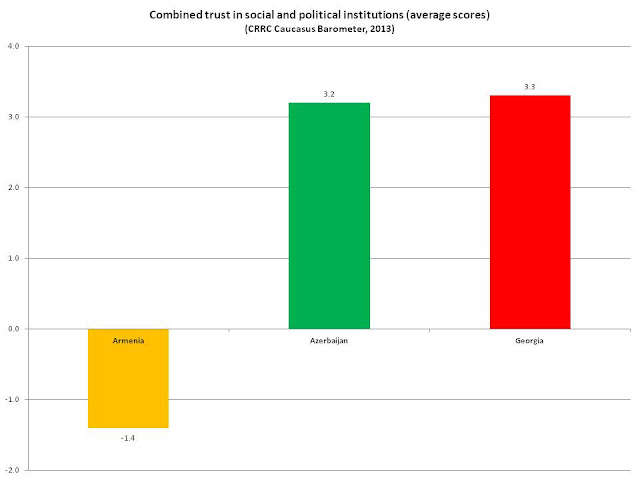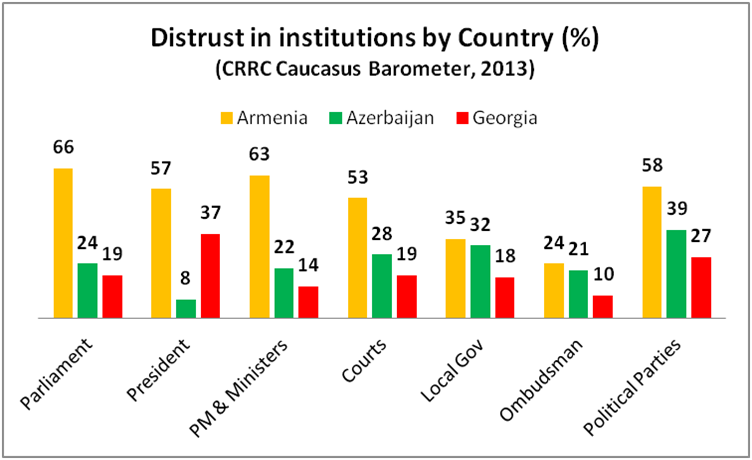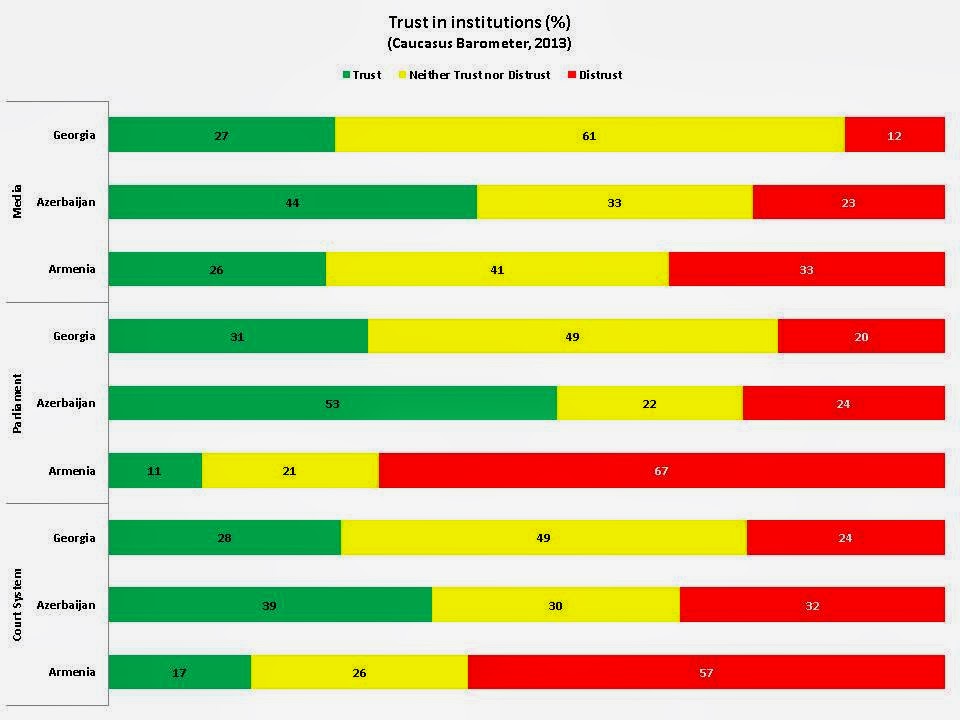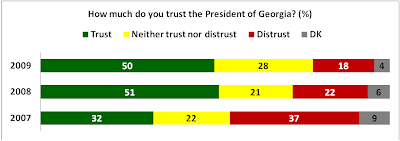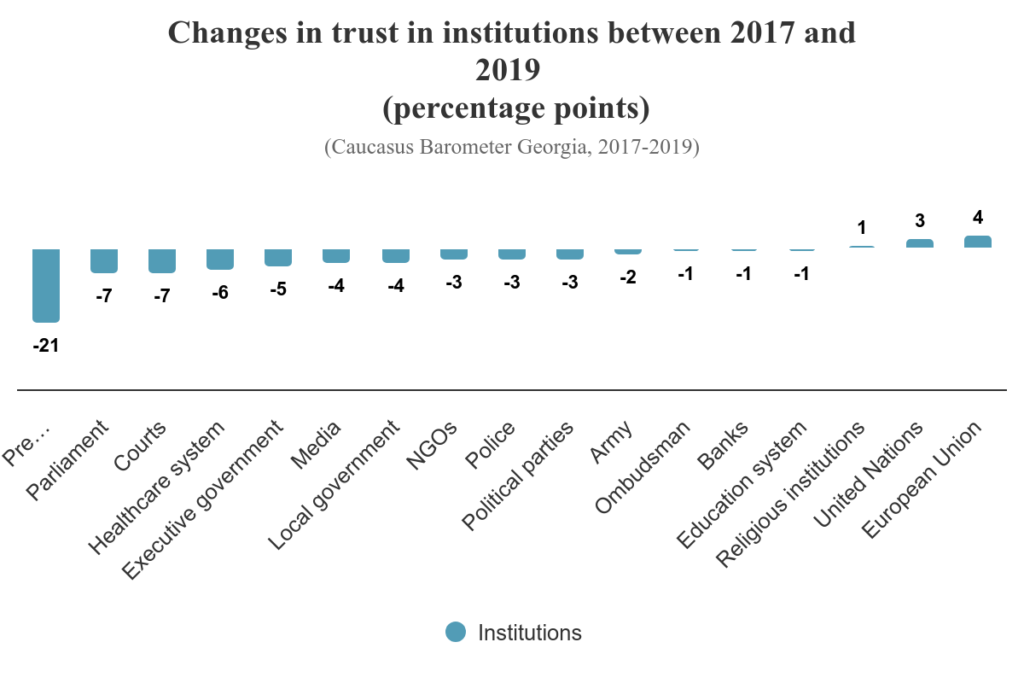
Trust in institutions has been on the decline in Georgia for a decade now. For instance, the level of trust in religious institutions declined from 86% of the public reporting trust in 2008 to 71% in 2019, with the decline being particularly prominent…
